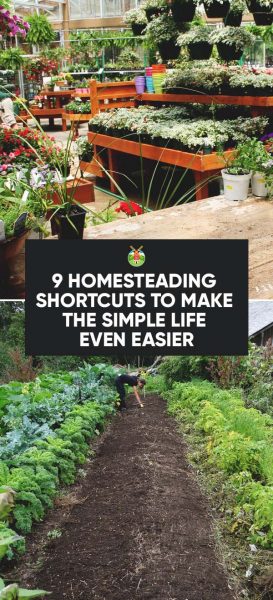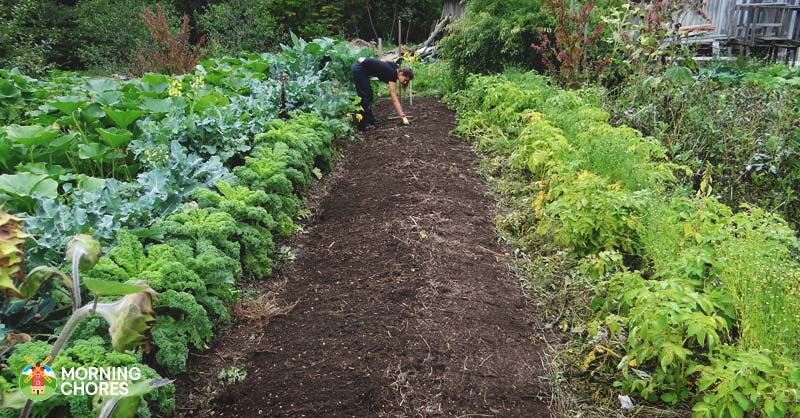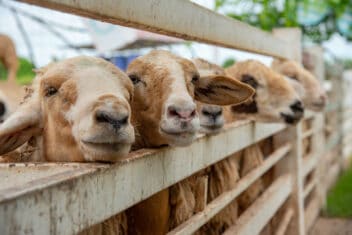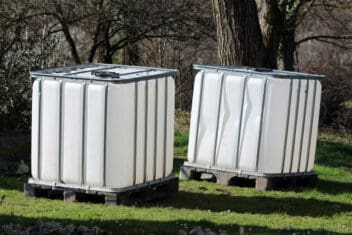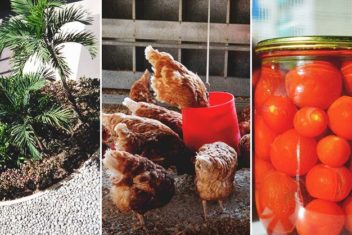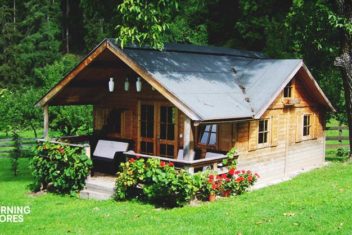Have you ever thought that you’d like to homestead to be a little more self-sufficient, but you feel like you just don’t have the time?
Maybe you work full-time, live in a smaller area with less land, or you just live with a packed schedule.
Well, I fully understand how that feels. My husband works a full-time job, we have multiple children, and when we began homesteading we had only 2 acres and ended up only using about a half acre.
But what I’d like people to see is that there are ways to be a little more self-sufficient without biting off a chunk of a huge homestead. There are ‘shortcuts’ if you will.
So I’d like to share a few ways with you that you can practice a little more self-sufficiency and preparedness even with a jam packed schedule, a full-time job, or very little space.
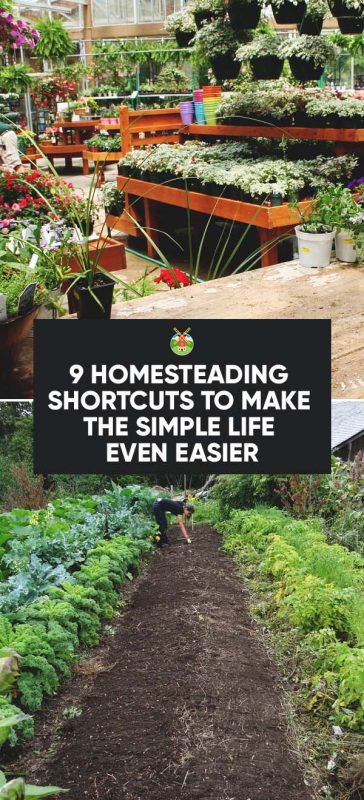
Here are my Homesteading Shortcuts:
1. Purchase Your Plants

via Wise Geek
Some people feel like if they can’t do it all from scratch, then why do it? If you are one of these people, then this post probably isn’t for you. This is for people that would like to be a little more prepared right where they are at.
But not everyone is in a place where they can just dive right into homesteading. I know we had to take baby steps because we had to learn what we were doing and how to do it with the amount of land we had.
So we took small steps. The first step we took was to start a garden, but I’d be dishonest if I said that we grew all of our own seedlings at first. No way, no how!
Are you kidding? I was just trying to learn how to not kill every plant I owned.
So instead, we purchased our plants our first couple of years. If you’d like to learn how to garden so you can be a little more self-sufficient, don’t feel bad if you don’t have the time or knowledge to grow them from scratch.
Instead, purchase some plants from your local nursery and plant that garden.
Actually, we had to purchase plants this year too. We moved right at the beginning of the growing season. We were late getting our garden in the ground so we purchased plants to help us make up the time. If it meant no garden or purchasing our plants, we would rather purchase our plants.
2. Use Your Water
I’ve written a few posts on how to conserve water around your homestead, and we shouldn’t be wasteful.
But if you are in a place where you’d like to keep livestock but saving rain water seems a little much to you, then don’t save it. You aren’t any less of a homesteader than the guy (or gal) who does. Some homesteads are busier than others so they don’t have time to focus on every little detail for saving money or resources.
However, the important thing is that you know how to save water so if you ever have to, then you can use that knowledge.
As long as you have a setup ready to go in place, in the event you need it, then you are still practicing self-sufficiency and preparedness.
Actually, with our move, I don’t have our rain water collection system set up yet. It feels weird to feed my livestock or water my garden from our actual well instead of a collection barrel.
But am I any less self-sufficient? Not really. I’ll go back to collecting rain water eventually just because for us, it makes sense, but we aren’t all in the same place living the same life.
So go ahead and hook up that water hose to your well or city water to water your plants or livestock. As long as you are taking care of what you have, then you are doing good!
3. Head to the Store
I’ve shared lots of ways to save money on feeding your livestock. For us, especially when we started out, it was essential to be able to feed our livestock for very little money because we couldn’t afford any added expenses.
But maybe you are trying to be prepared for a natural disaster, or are wanting fresh food that you know where it came from. If either of those are the case, then you can still purchase a good quality feed from your local feed store or here.
So if you are raising livestock, but still have a very full schedule, then don’t be afraid to save yourself a little time. Buy that store bought feed.
However, I do recommend knowing how to feed your animals on a budget because you never know when you may need feed and can’t get to the store.
Plus, knowledge is the power in homesteading. You don’t have to practice every bit of knowledge you have in your typical homesteading day.
But it does matter that you know how to do things in case you ever end up in a pinch.
4. You Don’t Have to Baby Your Plants
Some people will only use fertilizer on their plants that they themselves have made at home. There is nothing wrong with that and again, is a great source of knowledge.
But if you are gardening on the fly (like I was a month ago) you may not have time to go scratching through that chicken coop. Actually, if you’ve recently moved to a homestead, you may not even have chicken manure to apply to your garden. I didn’t.
Well, don’t let that stop you from having a gorgeous garden that produces great quality goods. Instead, head to your local nursery and purchase any type of fertilizer you feel comfortable with. You can purchase all organic or not, in most places.
Plus, if you really wanted to keep it as natural as possible, there are some farmers who sell chicken manure, rabbit manure, and cow manure to fertilize your garden. You could depend upon your fellow homesteader to help you out in a busy season of your life.
So don’t be afraid to utilize this short-cut.
5. Appliances are Your Friend

via Rent-A-Center
Some homesteaders are really amazing and go completely off-grid. They wash their clothes by hand and cook outside. These people are my heroes!
However, that doesn’t work for me in this season of my life. I have multiple children which create a ton of laundry. I actually did hand wash our clothes for a year and what a year that was!
But if you are super busy right now, don’t be afraid to crank up the old stove, washing machine, dryer, or dishwasher. There was a time in my homesteading life I would’ve felt like a failure because I didn’t wash my dishes by hand. I was trying so hard to be self-sufficient, save on the electric bill, and instill certain life skills in my kids.
Yet, I’ve learned through the years, that we can’t all homestead the exact same. If you are a farmer living on a hundred acres out in the middle of nowhere, then you are probably going to homestead differently than the suburban family that wants fresh food and self-sufficiency to lower their cost of living.
So some of you may read this and think, “Well, duh, I use my appliances every day.” But you’d be surprised how many homesteaders don’t and struggle when life happens and suddenly have to again. I’ve been there, and I know completely how that goes. Take the shortcut if it saves your sanity.
6. Buy from Friends
If you are someone that is thinking about starting a homestead but are worried about time constraints, or even a homesteader that has been thrown a curveball in life, then you’ll want this piece of advice. You don’t have to home grow everything, including your animals.
For example, it takes some time to incubate your own chicks. You may not have that time right now to check on your incubating eggs, candle them to see which are good and which are bad or worry about humidity levels.
Well, don’t feel like you have to. There is a homesteader somewhere near you that would love your business because they’ve incubated a bunch of chicks and need your order in order to pay their bills.
So feel free to skip the incubation period. Instead, purchase the chicks. Just make sure you know who you are purchasing them from and that they are healthy.
Also, you could actually skip the chick phase and go straight to buying laying hens. I don’t recommend this. The reason being is that if you are going to bring disease to your coop, you’ll do so easier with laying hens than chicks.
We learned this the hard way. When we first got started we purchased two different sets of laying hens. They did great and laid beautiful eggs for us for years.
Then someone gave us some more laying hens that had come from a chicken house. We were green and didn’t know what we were taking.
However, those hand full of birds brought in a disease that we weren’t aware of and killed off the majority of our flock in one winter. It was terrible.
So if you are going to take this short-cut just use discernment so you don’t end up with an unhealthy flock down the road.
7. Visit Your Butcher
We take this short-cut regularly around our homestead. I raise chickens and rabbits for meat. I just purchased enough land that we could finally support a cow, but we haven’t taken that leap yet. I had pigs once upon a time but no longer do.
So if I want pork or beef, I usually purchase it from a local store or butcher, but my goal every summer is to make sure (whether I raise it or buy it) that my family has enough food for a year in our home. You never know when you’ll have a snow storm or any issue that you can’t get to the store.
Plus, I find it saves my family money if I grow or purchase our food for a year in bulk.
So yesterday, we had a friend that raises hogs. He needed to get rid of two of them so we went out to his farm and culled them.
Then brought them home, butchered them, and (another short-cut) because we’ve been so busy I took it to have them processed. In a matter of four hours, the meat was processed, picked up, and filled up a freezer.
So when you think of homesteading, you may not always be in a position to raise every bit of food you need for your daily life. Think outside of the box and purchase what you need in a fashion that works for your family.
Whether this means you get animals from your homesteading friends, you purchase meat in bulk from a butcher, or you shop the meat sales at your local grocery store to stock your freezer. As long as it’s stocked is all that matters at the end of the day, in my opinion.
8. Sales, Sales, Sales
Shop sales. This sounds simple but is another great short-cut to help your homestead have plenty of food on hand for your family.
Most people don’t homestead with the idea of making money right off the bat. They do it to feed their families.
Well, not every homestead produces enough food to feed their families right out of the gate either. So what do you do in the mean time?
You shop sales.
Then when you find a great deal on any produce or meat, you bring it home and preserve it. It is that simple and can save you a bunch of money.
One example happened to us a few years ago. We needed corn because ours didn’t do so hot. So my mother-in-law and I were at a local grocery store when we saw their corn. It was only a few pennies an ear because they had gotten too much in their shipment.
Well, I bought every piece of corn they had. My buggy was virtually overflowing, and I only spent around $20. I took it home and canned every bit of it.
So this is a great option if you are someone that wants to stock your pantry but don’t have time to grow everything you need.
9. Hit the Grocery Store
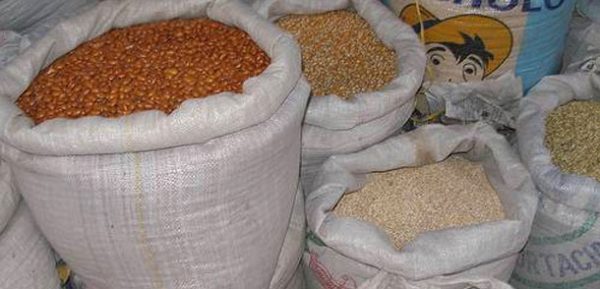
via Earth Easy
Finally, my last shortcut is to purchase the food that you’d like to can or preserve. I actually began canning with this method. I have a lot of large produce stands in my area.
So I purchase fresh food in bulk. I like this sometimes because when I need food in a hurry, I can go where I can still see where the food was grown.
Then I bring home food and can it. I’ve had to do it this year because we planted our garden so late. I like to go into winter knowing I have plenty of food.
So last Monday I went to a local produce stand and purchased 11 large boxes of tomatoes and 2 huge bags of corn. It took me a few days, but I ended up with 100 jars of crushed tomatoes, dehydrated tomato skins that are great for adding flavor to soup, corn cob stock, and canned corn.
I’m far from done, but it made my life easier this year knowing that regardless of what my garden ends up doing, my family will have plenty of food.
Well, there are my 9 short-cuts to homesteading. I hope that you see that practicing some form of self-sufficiency is completely doable even in our busiest seasons of life.
If your homestead doesn’t look like someone else’s, don’t worry about it. Comparison kills dreams. Just do what you can with where you are at.
And the next time life is crazy, remember these short-cuts to keep your dream alive. Now I’d like to hear from you. What shortcuts do you have around your homestead that makes your life a little more manageable during busy seasons?
We love hearing from you so leave us your comments below.
